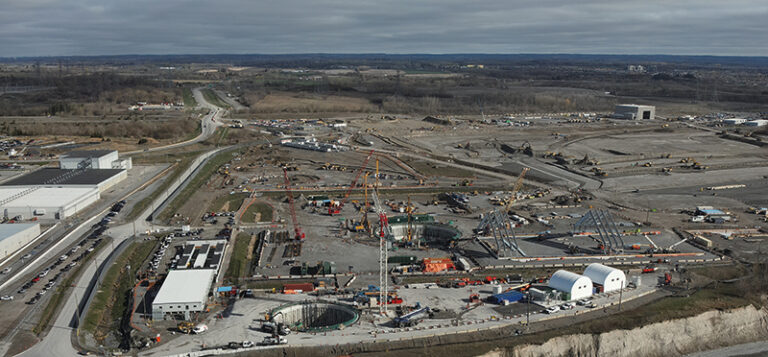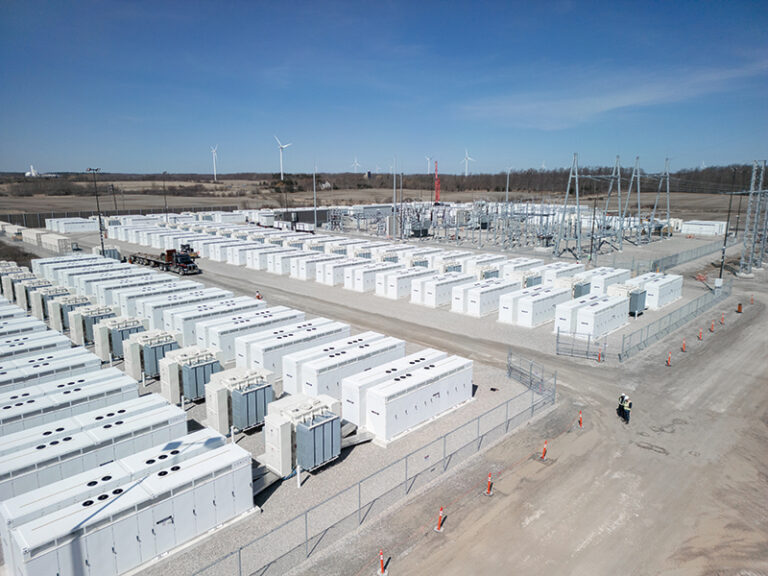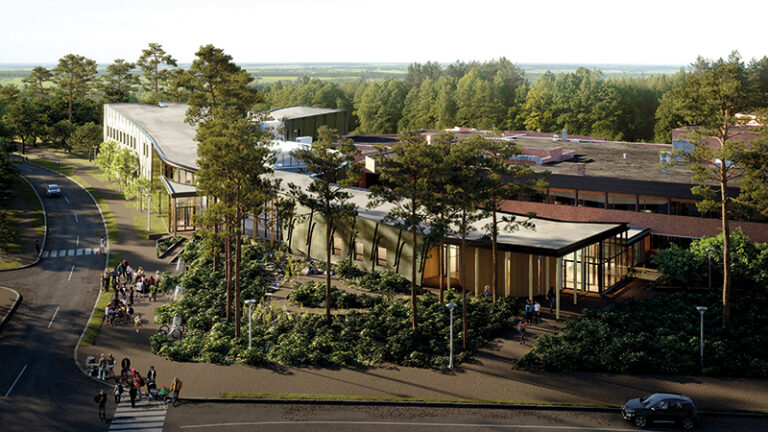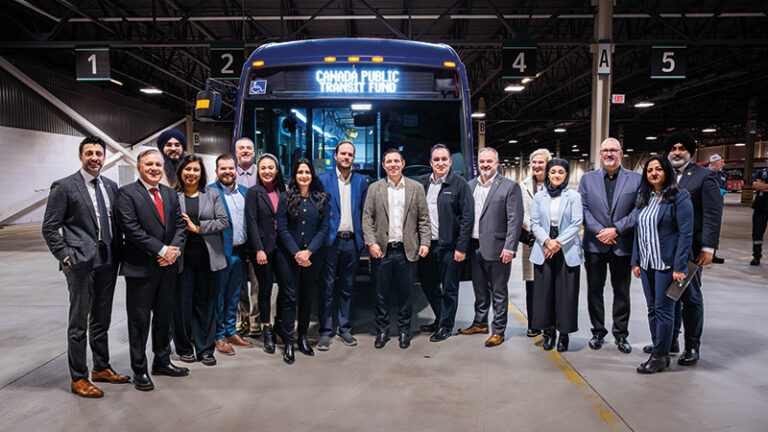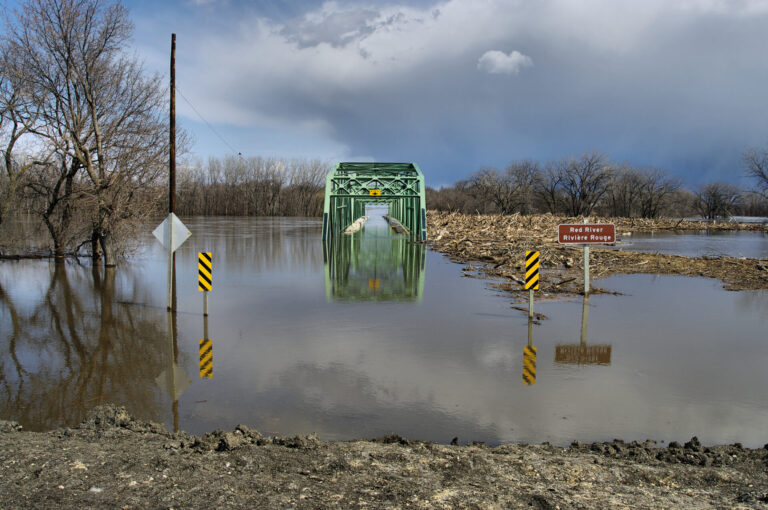Canadians have been organizing public-private partnerships (P3s) for nearly two decades and are well ahead of the United States. However, with local, county, and state governments needing to build, rebuild, and maintain roads, bridges, schools, water treatment plants, and other public assets, all while squaring the costs with tight budgets and a tax-weary public, P3s are gaining traction stateside. Even where partnerships haven’t caught on, there’s a growing desire to find the most suitable candidates, and Canadians are making the list.
 Plenary Group could very well serve as a role model. The company specializes in infrastructure, works exclusively through P3s, and before submitting its first U.S. bids last year, planned its strategy carefully. Plenary quickly landed its first contract, a 50-year concession to redevelop and operate a managed-lanes expressway along U.S. Route 36 near Denver, wrapping up negotiations in February 2014.
Plenary Group could very well serve as a role model. The company specializes in infrastructure, works exclusively through P3s, and before submitting its first U.S. bids last year, planned its strategy carefully. Plenary quickly landed its first contract, a 50-year concession to redevelop and operate a managed-lanes expressway along U.S. Route 36 near Denver, wrapping up negotiations in February 2014.
“We’d been looking for a number of years at the U.S. market,” says Plenary Group U.S. chairman Dale Bonner, who was himself recruited in 2012 as part of a build-it-there approach that saw the company open American headquarters in Los Angeles the following year.
As the secretary of business, transportation, and housing for the State of California, Bonner was active in developing the state’s P3 activities. “I was involved in a couple of pilot projects in the early ’90s, and then things went quiet when we went into the dot-com boom,” he says, recalling a brief foray into the private sector before returning to government in 2007 to resume P3 efforts.
Even while bidding on U.S. Route 36, Plenary sought out other potential projects. Although not selected for the Interstate 69 expressway in Indiana, the company remains shortlisted for projects as varied as the Illiana Corridor running through Indiana and Illinois, bridge construction in Pennsylvania, a rebuild of the Long Beach Civic Centre in California, and work on state criminal justice systems—including courtrooms, offices, and holding facilities—in Houston and Indianapolis.
The key to landing on those shortlists and winning the Colorado contract has been establishing a strong presence in the host country. “We were in operation before the office formally opened, so we were able to pull a team together drawing from across North America,” Bonner says, adding that Plenary is opening a second office in Denver.
Of course, considerable preparation is needed. Plenary Group started in Australia in 2004, established itself in Canada a year later, and had a strong identity and track record as a full-service, integrated investor and developer before turning to the United States. “It’s in our name,” he says. “We take a plenary approach and are involved in every step of a project from initial bidding, financing, and design through to construction, operation, and long-term maintenance.”
The company also values strong local partnerships. For U.S. Route 36, Plenary teamed up with Granite Construction and Ames Construction, both of which have locations across the United States. “You almost always want to draw from a workforce in the local community,” Bonner says. “Whether it’s building a hospital or transportation facility, we don’t own the assets. They belong to the public agency that sponsors them. So it’s important to have people there who understand the market, the way the government operates, and the needs of the local community.”
Ann Rosen, a trade commissioner with the Canadian Consulate General in Chicago, says companies that plan carefully and do their homework before devoting substantial efforts to pursuing particular projects improve their odds of success.
Companies need to carefully identify a few key projects and target their geographics to avoid spreading themselves too thin, says Rosen, whose portfolio includes infrastructure and whose territory includes Illinois, Missouri, and Wisconsin. Indeed, in Illinois alone there’s enough happening to keep infrastructure providers plenty busy. Chicago is the third-largest city in the United States, and Rosen’s three states, together, match roughly two-thirds of Canada’s entire gross domestic product, dollar wise.
Just steps from Rosen’s consular office, the Chicago Infrastructure Trust is working to accelerate projects such as athletic facility retrofits and solar deployments, and the Illinois Water Trust is facilitating badly-needed work on water and wastewater systems.
There’s also the aforementioned Illiana Tollway. The 47-mile-long (get used to miles!) P3 stretches from Wilmington, Illinois to Lowell, Indiana, and early predictions suggest overall costs could reach $2.8 billion, though the project faces an environmental assessment, planning-related criticisms, and other hurdles.
While such challenges are par for the course with large infrastructure projects, rules can vary considerably from one jurisdiction to another, and Rosen echoes Dale Bonner’s advice about local feet on the ground. “Have the appropriate personnel who have experience doing business in the U.S.,” she says. “Even though we’re so much alike, we have our differences.”
Canadian companies that know their strengths and weaknesses and have thought through their priorities have plenty of resources at hand. Rosen’s trade commissioner office is one of 16 that Canada’s Department of Foreign Affairs, Trade and Development operates in the United States.
“Our job is to facilitate and help Canadian firms do business in our territory,” says Rosen, whose job is akin to a matchmaker’s. She attends association meetings, business events, and trade shows to meet local and regional players, and she introduces them, when appropriate, to Canadian companies—which she refers to as her clients—that have approached her.
Rosen and her office also actively participate in events to reach out. In June, she organized a panel discussion at the Milwaukee Water Summit on using P3s to achieve water and wastewater projects. “I can’t create supply unless I have demand,” she explains. “A lot of people aren’t aware Canada is way ahead of the U.S. in terms of its competency in water and wastewater, so I like to identify opportunities to showcase Canada and Canada’s technology.”
Canadian firms prospecting for projects in the United States can also contact individual state departments of economic and community development for a helping hand.
Beatriz Gutiérrez, director of the office of international business development at the Connecticut Department of Economic and Community Development, says her organization offers concierge services and a single point of contact—an ombudsperson—for companies wanting to do business in the state. “This person works with both our Department of Transportation and our Department of Environmental Protection and with our municipalities to expedite permits and licences,” Gutiérrez says.
The office also helps companies with registration issues and provides information about accessing different markets.
Gutiérrez recommends contacting her office as soon as possible, well before looking for actual projects. “As soon as they think they’re going to be competing in the market, they should talk to us,” she says. “We want to make it as simple as we can for a company to establish a presence in Connecticut because partnering creates jobs and growth for our state.”
Indeed, she is emphatic that Canadian firms embed themselves into the local economy. “Our first goal is always to create employment and economic growth in our state,” she explains.
While in the preliminary stages of participating in P3s, Connecticut is hard at work on infrastructure projects in areas as diverse as transportation and college and university facilities.
While entering any new market can be challenging, and the myriad of rules, regulations, and complexities associated with individual states and municipalities may seem daunting, the United States is a global superpower working on its infrastructure. American firms might appear to enjoy a natural edge, but the country’s competitive nature makes it ripe for Canadians.
“We have a lot of expertise in the state to execute on these projects,” Gutiérrez says. “But in areas where we can identify a gap or where we think there will be value in partnering, we always look at opportunities.”
Saul Chernos is a Toronto-based writer specializing in environmental issues and a regular contributor to ReNew Canada.




